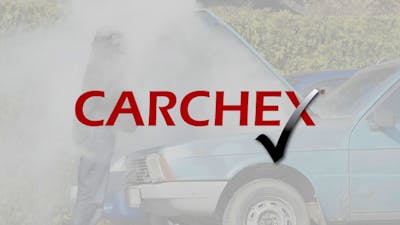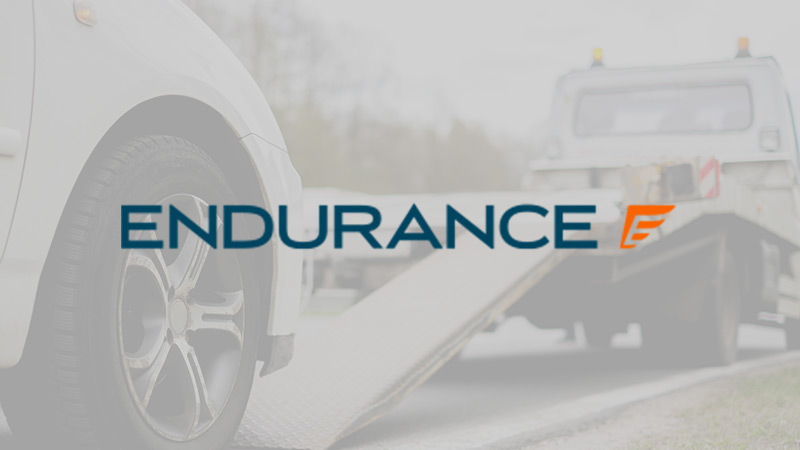Extended Warranties for RVs
You just bought a second home, but this one’s on wheels and spends a lot of time on the campgrounds. RVs have become a significant investment, with most selling new for more than $20,000, with some costing several million. With all that money sunk into your camper-home away from home, you might be thinking about protecting that investment with an extended warranty. But just as with car extended warranties there are a lot of things you need to think about before buying one.
Popular Warranty Providers
What is an RV Extended Warranty?
An RV extended warranty is a lot like an extended warranty for a regular car, but how you choose one can be a little different, especially if your RV is a motorhome. That’s because a motorhome is really two products in one; a vehicle, and a camper, and both are prone to needing expensive repairs.
An extended warranty for a travel trailer, 5th wheel, or motorhome is a promise from the company you buy it from to pay for repairs that are covered by the contract. Keep in mind that there is usually a deductible you’ll be required to pay any time you get service under the contract.
An extended warranty isn’t actually a warranty at all. It’s a vehicle service contract. The difference is that to be a warranty, coverage has to be included in the purchase price of the vehicle. If you have to pay extra for it, it’s not really a warranty. As warranties and service contracts are regulated differently - in some states service contracts aren’t regulated very much at all - it’s very important to carefully read the service contract before you agree to buy it.
What to Consider Before Getting an RV Extended Warranty?
Even with pull-behind campers, when you think about it, you’re taking a lot of the equipment you’ve got in your house, like refrigerators or air conditioners, and you’re bouncing them down the road at highway speeds. It’s a fact of life with RV’s, things will break. You need to be ready to fix them, either by having money set aside to do it, or by paying in advance to have the option of getting someone else to pay when your camper needs repair.
Of course, as with extended warranties for normal vehicles, companies wouldn’t sell them if they weren’t making money. That means that on average, a customer will pay more for the warranty than they will get out of it. On the other hand, if you’re among the statistically smaller customers who get large repairs covered, it can really pay off for you.
When shopping for a warranty consider what equipment your RV has. Higher end equipment like slideouts can be expensive to fix, so it’s a good idea to make sure any plan you choose will cover the pricey stuff.
On the other hand, keep in mind there are things RV extended warranties won’t cover, such as roof leaks caused by tree branches. As roof leaks can cause catastrophic damage to RVs, in addition to examining your extended warranty, you’ll also want to make sure your RV insurance policy covers such damage.
What to Look For in an RV Extended Warranty?
If you decide an RV extended warranty is for you, next you need to figure out what kind to get. Basic warranties cover less than more comprehensive ones. That’s especially true for motorhomes. Motorhomes are commonly thought of in two categories - the car section, which includes all the components that make it a vehicle, and the house section, which covers the camper portion. Some RV extended warranties may only cover the car section, while others cover the entire vehicle, including the house components. Make certain to read your contract fully, to ensure you are getting the coverage you need.
Then there’s the type of contract, of which there are two main categories, inclusionary and exclusionary. Inclusive contracts list all the components they cover. If a part isn’t on the list, it won’t be covered. Exclusionary contracts cover everything except what is listed as exclusions. In general, exclusionary contracts cover more than inclusive contracts, but that means they’re also more expensive.
If you want the best possible coverage, you usually want an exclusionary contract. Check into optional extras you can tack on - sometimes those extras are for systems you might want to cover, such as more components that make up your expensive slideouts.
What is the Cost of an RV Extended Warranty?
RV extended warranty prices are all over the map, depending on a lot of variables that don’t even exist for regular extended warranties. Contracts for towable campers are usually cheaper than those for motorhomes. You’ll likely pay more for that half million dollar Class A than you will for a Scamp. And RVs with luxuries like slideouts, toy storage, or full appliances will cost more than more basic campers. And if you’re a so-called “full timer,” who uses the RV a lot more than most, there will be even more cost to a plan.
As we said, inclusive contracts usually cost less than exclusionary contracts. And contracts issued on new RVs often cost less than ones issued for older campers, simply because newer ones are less likely to break during the contract period.
Expect to pay between $1,000 on for a limited coverage inclusive contract on a lower-priced camper that you use twice a year, to sometimes over $10,000 for exclusionary expensive motorhomes that are used more often.
Is an RV Extended Warranty Worth It?
From a purely financial standpoint, statistically they’re not. That’s why the regulars on our Car Talk Community forum will almost always tell you to avoid extended warranties of any kind. Companies have to make more selling them than they spend honoring them, or they’d go out of business. That means most people won’t use their warranty enough to make up for what it cost them. But that’s true of any insurance policies you carry as well; you have fire insurance on your house even though it’s very unlikely you’ll ever need it.
From a different point of view, an extended warranty might be worth it. If not having coverage will keep you up at night, worrying about having to pay for an unexpected RV repair, then an extended warranty might give you enough peace of mind to make the expense worth it.
Good RV Extended Warranty Companies
RV extended warranty companies aren’t usually the same ones that offer extended warranties for regular cars. If you’re looking for coverage for your camper or motorhome, there are a few companies that are worthy of consideration.
America’s RV Warranty is a popular choice for RV owners. They’ve got several different plans for trailers and motorhomes, plus a buffet of extras such as tire and wheel road hazard coverage, or protection if there’s a surge in the campground’s shore power that damages things in your RV.
Good Sam has a long history of providing auto club style coverage for RV owners. But they also offer extended service plans for motorhomes, trailers, and even the trailer’s tow vehicle. Unlike many other companies, Good Sam’s offering is not an extended warranty, but instead mechanical breakdown insurance. The difference is that an extended warranty, which as we talked about earlier isn’t actually a warranty, is a service contract, while mechanical breakdown insurance is just what it says - an insurance policy. As insurance, it’s generally subject to insurance regulation in the state where it’s sold.
If you buy your RV from a dealership, they might offer you an extended warranty from the redundantly-named Protective Asset Protection. They offer a standard, for RVs, menu of coverage options but since you’re probably buying them via a dealership, it might cost more than 3rd party plans. Remember that buying an RV is like buying a car - everything’s negotiable. Try to talk the dealership down in price. It can’t hurt!
For more information about extended warranties, check out our article about the Best Extended Warranty Companies.
For more on this topic, check out our How to Buy a Used RV article.
Read more on the Best Insurance for your RV here.










